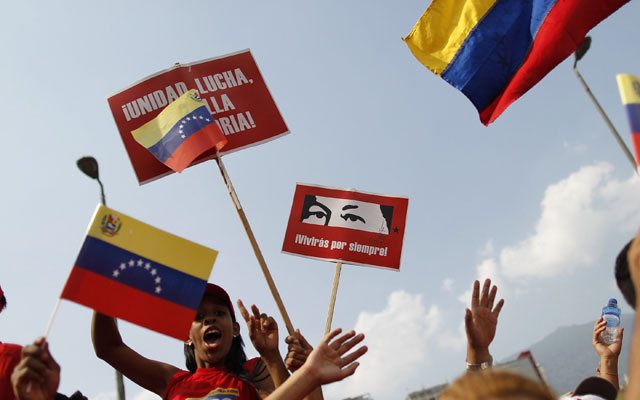On April 14, some 14.8 million Venezuelans went to the polls to select a new president to replace Hugo Chavez, who died on March 5. By the narrowest of margins—reportedly fewer than 235,000 votes—it appears that Nicolas Maduro, candidate of Chavez’s United Socialist Party (PSUV), defeated opposition leader Henrique Capriles of the Democratic Unity Coalition (MUD).
Playing heavily on grief and loyalty to the late leader, El Comandante, Maduro confidently projected an air of invincibility stating he would gain 10 million votes and a double-digit victory margin. He actually received 7.5 million votes to 7.2 million for Capriles. The opposition has noted more than 3,200 irregularities and demanded a full count of the paper ballots generated at the polling places to reconcile errors in the electronic tallies. The Obama Administration has endorsed the idea of a recount.
The electoral outcome, if it stands, clearly demonstrates that the hold Chavez once exerted upon adoring masses does not extend to his hand-picked heir. Given the massive advantages enjoyed by the uncharismatic Maduro—loyalty to the dead leader, control over public-sector workers, virtual dominance of the media, the backing of senior military officials, etc.—the decline in support for the Chavista movement is significant and will translate into a weaker hand for Maduro within his party and less receptivity for the radical socialist agenda. Mounting economic problems, crime, and corruption threaten to further undermine Maduro’s capacity to govern in the future as he will now appear weak to party rivals who will likely question his leadership ability.
After weeks of claiming that the U.S. infected Chavez with cancer, has worked to assassinate candidates, and attempted to destabilize Venezuela, Maduro claims he is ready to talk with the U.S. But it is deeds and actions—an honest recount of votes, a cessation of polarizing politics, cooperation to combat drug trafficking, and a rethinking of close ties with Iran—not words that will make a difference in relations with Washington.
